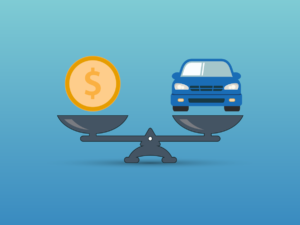Learn how auto loan refinancing might affect your credit
Auto loan refinancing can have many benefits for your short and long-term financial outlook. But if you keep a close eye on your credit profile, you might be wondering how refinancing is going to affect your credit score.
The truth is, refinancing any loan will invariably have minor, short-term impacts on your credit. They can vary based on your situation. For someone with a long, well-established credit history, these impacts will be minor; however, for someone with little to no credit history, these factors will make a much bigger impact.
Still, in the long run, auto loan refinancing will generally help your credit as it simultaneously closes out a loan and adds a loan approval to your credit report.
Let’s take a look at three ways an auto loan refinance can affect your credit profile:
1. Credit Inquiries
When a lender checks your credit report to evaluate how risky it would be to lend you money, that shows up as what is called a “hard” inquiry. Typically, these will impact your score by a small amount, typically by five to 10 points. And while they will stay on your credit report for several years, their impact on your actual score will dissipate after several months.
A number of hard inquiries from various types of lenders could be a red flag for prospective lenders. Groups of hard inquiries suggest you were desperate to open new credit, at some point, for some reason. Too many hard inquiries in too short a period of time could hurt your ability to get good interest rates or even get approved for a loan at all.
That being said, those same lenders usually understand that when you’re shopping for financing for a big-ticket item such as a home or auto loan, you are likely to get quotes from several sources to get the best rate.
Most credit score models will group all hard inquiries made within a 14-day period together as a single unit. While they will be listed individually on your report, they will only affect your score once. For that reason alone, it is important to ask for quotes only after you have finished your research and you are ready for auto loan refinancing.
2. Your Credit History
Auto loan refinancing also impacts your credit by altering your repayment history. As you make regular payments on time, your score improves. This demonstrates that you are a reliable person who takes credit obligations seriously.
When you refinance, you wipe that payment history clean and start from scratch with a new loan. Because only some models will take older loan payment histories into account, your best bet is to just anticipate that this will impact your credit score and plan accordingly.
3. Your Credit Utilization
Your credit utilization is the total amount you owe your creditors compared to your total available credit. Generally speaking, if your credit utilization is below 30%, you’re in good shape. Any more than that and your score will take a hit.
When you delve into auto loan refinancing (or any kind of refinancing for that matter), you change your credit utilization. If you take out a loan for more than the original — to get cash out, for example — then you increase your utilization rate. If you take out a loan for less, you might lower your overall total utilization rate. While this shouldn’t be the primary deciding factor when it comes to refinancing, it can have an impact on your score.
You might see a short-term dip in your credit score after refinancing your auto loan, but the effect is typically negligible, and the potential benefits — including a lower payment amount and a lower interest rate — may far outweigh any negatives.







